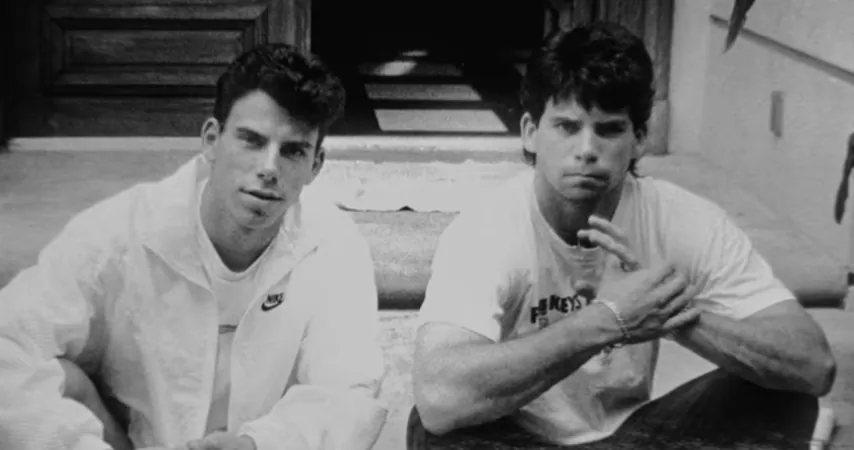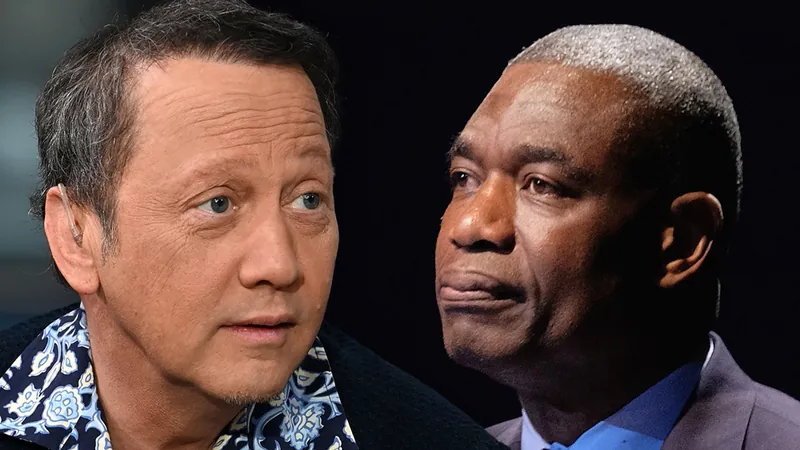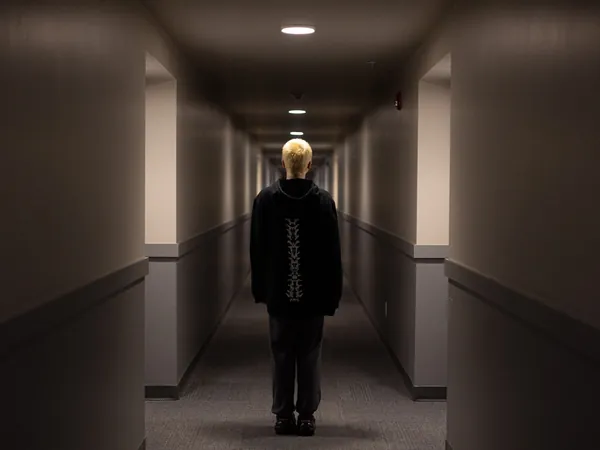
The Menendez Brothers: Netflix's Diverging Perspectives on a Notorious Crime
2024-10-07
Author: Olivia
The Contrasting Presentations of a Notorious Crime
In a striking turn of events, Netflix has recently unveiled two contrasting projects centered around the infamous Menendez brothers, Lyle and Erik, just weeks apart. The limited series, Monsters: The Lyle and Erik Menendez Story, and the documentary entitled The Menendez Brothers offer vastly different interpretations of the case that gripped the nation in the 1990s.
A Theatrical Approach
The limited series, produced by Ryan Murphy and Ian Brennan, takes a more theatrical approach, presenting various motives behind the brothers' shocking crime. Central to its narrative is the assertion that Lyle and Erik murdered their parents, José and Kitty Menendez, in cold blood with the aim of inheriting the family wealth. Prosecutors during their high-profile trial pushed a similar narrative, painting the brothers as calculating killers who orchestrated the horrific act for financial gain.
A Sympathetic Tone
However, the documentary, directed by Alejandro Hartmann, adopts a noticeably sympathetic tone towards the brothers, presenting their claims of enduring severe abuse at the hands of their father as central to their motivations. The film posits that the trauma of José Menendez's alleged sexual abuse triggered the brothers' violent reaction, and suggests they should have been convicted of manslaughter instead of first-degree murder.
Insights from Prison Calls
Central to the documentary's perspective is a series of prison phone calls that span over 20 hours and provide deeper insights into the emotional turmoil the brothers continue to experience. Supporters of the Menendez brothers are likely to find resonance with Hartmann's approach given Erik's previous criticisms of Monsters, especially its portrayal of the abuse allegations which he deemed inaccurate. The documentary features remarks from Pamela Bozanich, a prosecutor in the original case, who vehemently contests the authenticity of the brothers' abuse claims, asserting that their defense was entirely fabricated.
The Flawed José Menendez
One of the critical observations from The Menendez Brothers is its comprehensive focus on the background of José Menendez, whom multiple interviews paint as a deeply flawed and abusive individual. Cousin Diane Vander Molen recounts how Lyle confided in her about the abuse, only for their mother to dismiss the claims. These revelations starkly contrast with Monsters, which leaves viewers questioning the severity of José's abuse.
Cultural Context and Public Perception
The documentary also delves into the cultural context of the case, highlighting the impact of the O.J. Simpson trial on public perception and the judicial system's treatment of high-profile defendants. As the Menendez brothers faced their retrial just days after Simpson's not-guilty verdict, the documentary underscores the shift in public sentiment that painted them unfavorably in the eyes of potential jurors.
Omissions and Narrative Gaps
Notably absent from Hartmann's documentary is any mention of José Menendez cutting his sons out of his will—an omission that arguably weakens the prosecution's narrative of financial motive. Additionally, the documentary does not adequately explore the brothers' extravagant spending spree following their parents' murders or the construction of their alibis post-crime, elements that Monsters tackled more thoroughly.
Unexplored Allegations and Complexity
Moreover, neither project addresses troubling allegations that José Menendez abused minors outside of the family, a serious claim made by Ray Roselló, a former member of the boy band Menudo, in an earlier documentary.
Concluding Thoughts
As viewers grapple with the starkly different approaches taken by these two projects, many questions remain unanswered. Whether one finds vindication in The Menendez Brothers or is swayed by Monsters, it becomes evident that the Menendez story is far more nuanced than either depiction suggests, leaving audiences with an unresolved tale of trauma, complexity, and conflicting narratives.









 Brasil (PT)
Brasil (PT)
 Canada (EN)
Canada (EN)
 Chile (ES)
Chile (ES)
 España (ES)
España (ES)
 France (FR)
France (FR)
 Hong Kong (EN)
Hong Kong (EN)
 Italia (IT)
Italia (IT)
 日本 (JA)
日本 (JA)
 Magyarország (HU)
Magyarország (HU)
 Norge (NO)
Norge (NO)
 Polska (PL)
Polska (PL)
 Schweiz (DE)
Schweiz (DE)
 Singapore (EN)
Singapore (EN)
 Sverige (SV)
Sverige (SV)
 Suomi (FI)
Suomi (FI)
 Türkiye (TR)
Türkiye (TR)